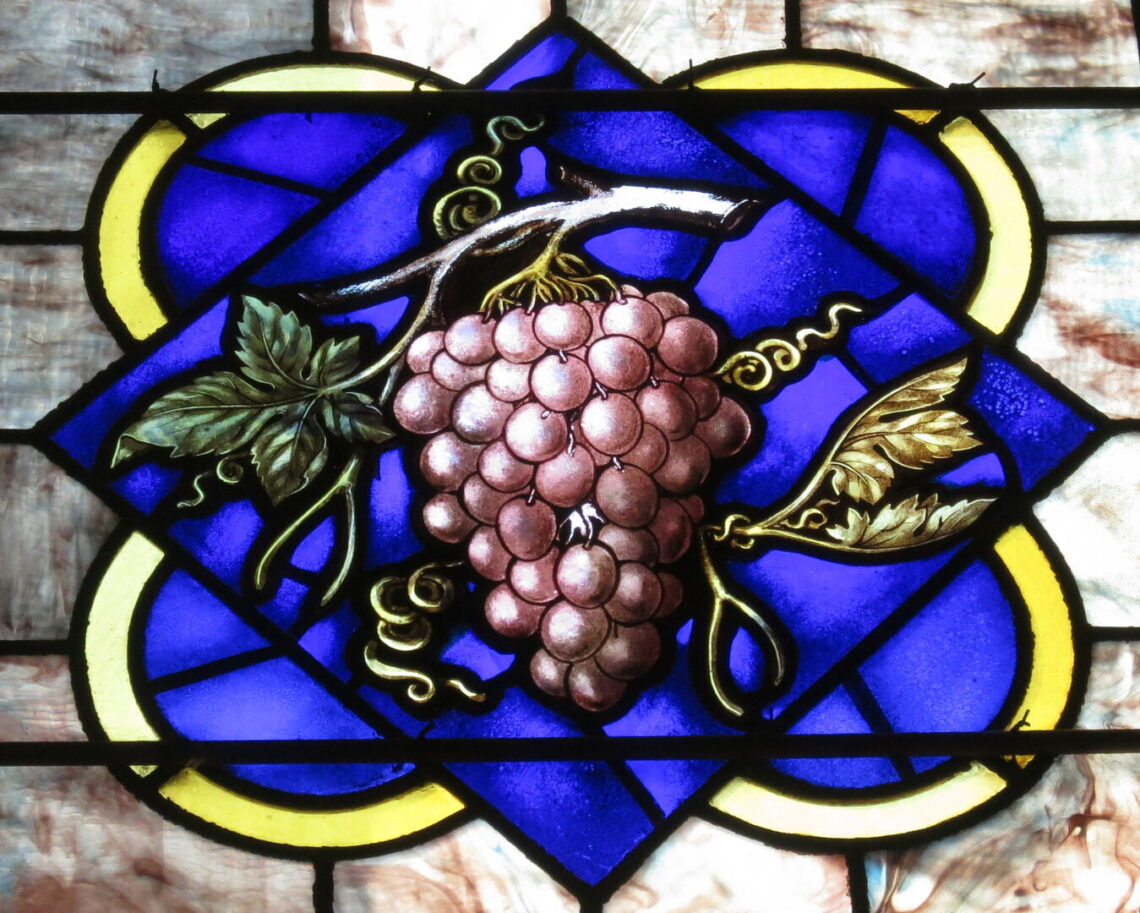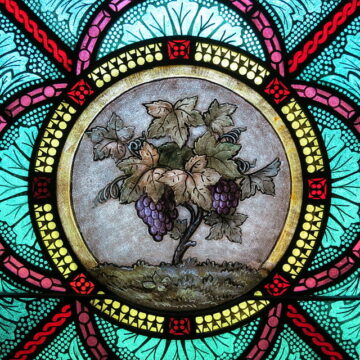Franciscan Friar Fr. Paul Gallagher reflects on the Gospel readings for the Fifth Sunday of Easter. What is your experience of growing plants and especially vine-like plants?
The content is edited by Franciscan Sister of Christian Charity Sister Anne Marie Lom and Joe Thiel. The excerpts from the Sunday readings are prepared by Joe Thiel. To read or download the complete pdf with excerpts for your prayer, please click here Franciscan Gospel Reflection April 28 2024. Excerpts are from the Lectionary for Mass for Use in the Dioceses of the United States of America, second typical edition © 2001, 1998, 1997, 1986, 1970 Confraternity of Christian Doctrine, Inc., Washington, DC. Used with permission. All rights reserved. No portion of this text may be reproduced by any means without permission in writing from the copyright owner. Photo: Nheyob, CC BY-SA 4.0 <https://creativecommons.org/licenses/by-sa/4.0>, via Wikimedia Commons; Nheyob, CC BY-SA 4.0 <https://creativecommons.org/licenses/by-sa/4.0>, via Wikimedia Commons.
John 15:1-8
Jesus said to the disciples: “I am the true vine, and my Father is the vine grower.
He takes away every branch in me that does not bear fruit, and every one that does he prunes so that it bears more fruit. You are already pruned because of the word that I spoke to you. Remain in me, as I remain in you. Just as a branch cannot bear fruit on its own unless it remains on the vine, so neither can you unless you remain in me.
I am the vine, you are the branches. Whoever remains in me and I in him will bear much fruit, because without me you can do nothing. Anyone who does not remain in me will be thrown out like a branch and wither; people will gather them and throw them into a fire and they will be burned. If you remain in me and my words remain in you, ask for whatever you want and it will be done for you. By this is my Father glorified, that you bear much fruit and become my disciples.
Background:
The image of God as the master gardener is familiar. Traditionally, Israel would have been represented as the vine through which individuals would maintain their relationship with God.
“Let me now sing of my friend, my friend’s song concerning his vineyard. My friend had a vineyard on a fertile hillside; he spaded it, cleared it of stones, and planted the choicest vines; within it he built a watchtower, and hewed out a wine press. Then he looked for the crop of grapes, but what it yielded was wild grapes. Now, inhabitants of Jerusalem and men of Judah, judge between me and my vineyard: What more was there to do for my vineyard that I had not done? Why, when I looked for the crop of grapes, did it bring forth wild grapes? Now, I will let you know what I mean to do to my vineyard: Take away its hedge, give it to grazing, break through its wall, let it be trampled! Yes, I will make it a ruin: it shall not be pruned or hoed, but overgrown with thorns and briers; I will command the clouds not to send rain upon it.” (Isaiah 5:1-7)
In the above text, the prophet Isaiah speaks of the vineyard that God has planted. But the vineyard has refused to bear good fruit. In the Gospel text, John uses Jesus’ image of a vine that carries life throughout the plant to teach the Christian community through its relationship with Jesus Christ. Another appealing aspect of this image is that it is difficult to tell where the grapevine’s vine ends and the branches begin. Like with grapevines, the different branches spring out from each other and are twisted about each other. The text also emphases that the purpose of the plant is to produce a harvest. The nonbearing branches are pruned away from the plant so that new branches will grow that will produce a harvest. The branches cut off from the vine will die.
The vine becomes an image for the new Christian community that is dealing with diversity within itself. That diversity can strain their relationships with each other and the community itself. The new Christians came from Jerusalem, Judea, Galilee, and Samaria. They were Jews and Greeks. Among the first followers of Jesus were those, like Paul, who at first openly persecuted Jesus and his followers. John uses the image of the vine to speak to this diverse group of people. The risen Christ gives each of them life and binds them together. To be cut off from the other branches is to be cut off from the life source itself.
A system of patronage was widely used at the time of Jesus. Normally people received the goods they needed through a system of trading. If this system failed to meet the needs of people, other sources would have to be developed. People would seek out someone with more influence to be their patron. If the patron accepted, they cared for the other’s needs. In exchange, the patron would receive abundant public praise from the person that was being sponsored. The patron received public admiration of the community and was highly valued by people of the day.
Reflection Questions:
- What is your experience of growing plants and especially vine-like plants?
- Where does your experience of life mirror the interconnectedness of the society and individuals?
- How has diversity enhanced your life?
- Are you also aware where diversity threatens your life?
- What are the fruits that God might be looking to receive from God’s shared life with you?
- What kind of pruning would help you to bear those fruits?
- Can you take some time to talk with God about your desire to bear fruit, or how you are feeling about pruning some aspect of your life?




